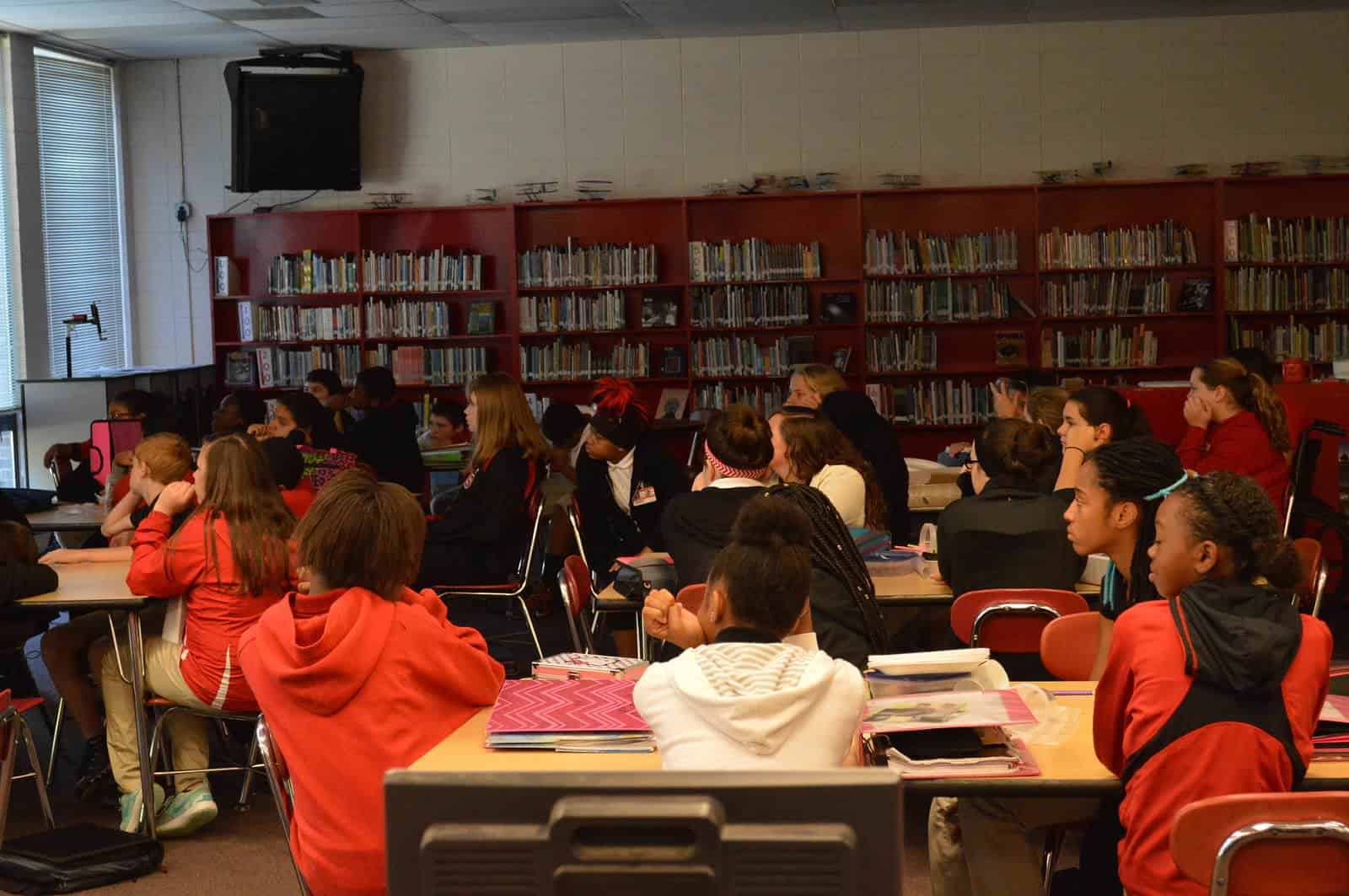I recently spent an afternoon visiting Hamlet Middle School. Hamlet is on the southern border of North Carolina, between Rockingham and Laurinburg, and used to be a thriving railroad and textile town. These days it has hit hard times, and unemployment is high. Eighty-six percent of students attending HMS qualify for free or reduced price lunch.
Jim Butler, HMS’s principal, is an inspiration. He grew up in the community, graduated from UNC Pembroke, and came back to be a teacher. He is determined to do well by his students, and he knows that to do that he has to treat his teachers well. In 2011, HMS agreed to participate in the Schools to Watch program, which is a whole school improvement effort. He established grade-level teams, rearranged the school day schedule to give core teachers common planning time, and applied for a grant to put computers in English, Social Studies, and Science classrooms.


Butler knows that the best discipline is a great lesson plan. Fights are rare, and suspensions are down 75 percent. In 2013, Butler was named the Middle School Principal of the Year for North Carolina’s central region, and HMS was named a national Middle School to Watch.
Butler has done well by his students and his teachers. In 2015, 88 percent of the students of Hamlet Middle School exceeded expected growth, meaning they made a year or more of academic progress that school year. Only 11 percent of his teachers left, four out of 36, impressive for a high poverty, rural middle school.


Butler and his staff have a steep hill to climb, however, to enable each of their students to leave prepared for high school. Only 32 percent of their 6th graders start school on grade level in reading, and only 26 percent in math.
In spite of these challenges, with clear expectations, careful use of resources, and a lot of human caring, Butler and his teachers beat the odds.
This kind of double-digit gain can only be achieved by schoolwide determination, hard work, and excellent instruction, and it deserves our applause.
Instead, the State of North Carolina gave Hamlet Middle School a D. That’s because, under the State’s school grading system, 80 percent of the grade depends on what portion of students are on grade level, and all the work those teachers did to enable the students to achieve high academic growth, getting a year or more of learning that year, only counts for 20 percent of the grade.
It is tragic that over half of Hamlet’s middle school students are not at grade level, but it isn’t the staff of Hamlet Middle School that is failing these children. It’s the system that allowed over two-thirds of them to get to middle school below grade level that is failing. The lack of funding for programs to support mothers in the early critical years of brain formation, the lack of a sufficient number child care subsidies, the lack of enough high quality child care centers, and the lack of enough seats in high-quality 4-year-old pre-school programs – these result in children starting elementary school unprepared to learn.


After that our state fails to provide Hamlet’s elementary school with enough support for teachers and other resources to do the hard work of enabling each of these children to catch up, thus making their middle school success unlikely. It is this systematic underfunding that is failing Hamlet’s children.
The citizens of North Carolina value education, and we have capacity to provide the resources children need to leave school prepared for life. Instead of giving Hamlet Middle School a D, the State should give its teachers and leaders an A. It should give itself the D.
Editor’s Note: This article was first published in The Charlotte Observer on January 23, 2016. It is reprinted here with the author’s permission.




